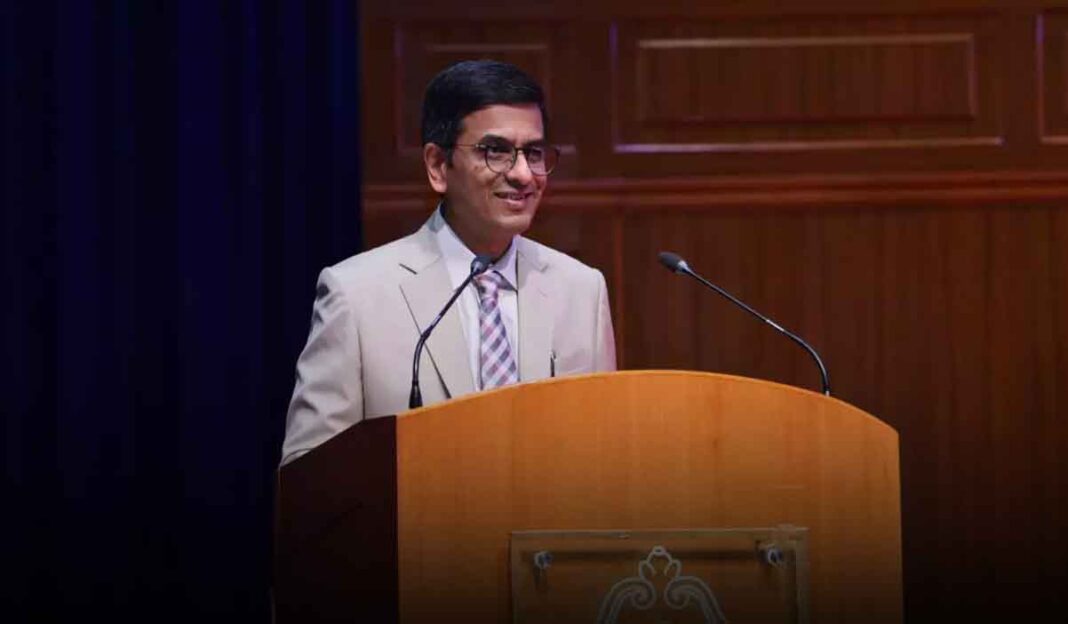Chief Justice of India (CJI) D Y Chandrachud on Friday emphasized that India is ready to take a leadership role in promoting a culture of international arbitration, ensuring a fair and level playing field for dispute resolution beyond domestic courts
He highlighted that upholding the rule of law fosters fairness, stability, and predictability, which, in turn, creates a conducive environment for economic growth. “Investors thrive in systems where rights are protected, contracts are enforced, and disputes are resolved efficiently,” the CJI said.
Speaking at a conference on international arbitration and the rule of law, Justice Chandrachud stressed that a strong legal framework encourages foreign investment, boosts trade, and enhances a nation’s global competitiveness, contributing to sustainable economic development and improved living standards.
“The rule of law is integral to economic stability and growth, much like the virtual semi-conductors of our digital era,” he remarked.
He referred to projections from the International Monetary Fund (IMF), which forecast a 7% growth in India’s GDP for 2024-25, positioning the country near the top of the global economic ladder. The World Bank echoed similar sentiments, and the CJI also pointed to the steady increase in foreign direct investment (FDI) inflows and outward investments.
Justice Chandrachud called for India to lead in fostering international arbitration, offering a robust and reliable platform for dispute resolution. By developing strong institutional frameworks, he said, India could champion arbitration in the Global South, providing fair and effective means of resolving commercial disputes.
On the legislative front, the CJI mentioned that Parliament is working to overhaul the Arbitration and Conciliation Act of 1996. A committee formed by the Ministry of Law and Justice has submitted its report, which is currently under review, paving the way for potential reforms.
The CJI acknowledged that in the past, India lacked the professional expertise to handle investor-state arbitration but noted that this environment has transformed with the rise of professional arbitration practices in the country.
As arbitration becomes a preferred method of dispute resolution, he pointed out, there has been a rise in related litigation before the courts, necessitating judges with specialized knowledge in this area. He added that in recent years, judges with extensive experience in arbitration have been appointed to high courts.
Justice Chandrachud underlined the importance of this conference’s theme, stating that while commercial efficiency and ease of business are often prioritized in arbitration, these values are inseparable from respect for the rule of law, which ultimately drives better economic and commercial outcomes.
In addition to Justice Chandrachud, Supreme Court judge Justice Sanjiv Khanna, Attorney General R Venkataramani, Supreme Court Bar Association president Kapil Sibal, and Permanent Court of Arbitration Secretary General Marcin Czepelak also spoke at the event.
Justice Khanna noted that arbitration is a leading method for resolving commercial and international disputes. “India has enacted several reforms to position itself as an arbitration-friendly jurisdiction, resulting in significant improvements in contract enforcement and ease of doing business,” he said.
(With inputs from agency)
Share your news, articles, deals, columns, or press releases with us! Click the link to submit and join our platform today.


